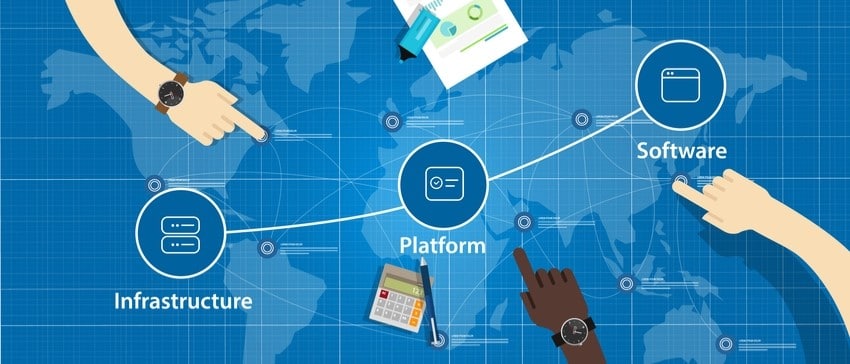The procurement industry is changing at a fast pace owing to the rapid development of new procurement technologies.
With digitalization becoming the norm, Chief Procurement Officers (CPOs) have found it necessary to stay on top of the news regarding procurement software best practices.
The hot topic right now is the future of procurement technology and what this looks like.
Enter digital procurement.
What is Digital Procurement?
Digital procurement is defined by Deloitte in its Future of Procurement in the Age of Digital Supply Networks report as:
“…the application of disruptive technologies that enable Strategic Sourcing (S2C) to become predictive, Transactional Procurement (P2P) to become automated, and Supplier Management (SM) to become proactive.”
And just what are these digital procurement technologies set on disrupting the industry?
In order to answer this question satisfactorily, we must understand that there are three procurement tech categories – core technologies, developing technologies, and emerging technologies.
High Current Deployment Low
| CORETECHNOLOGIES | DEVELOPING TECHNOLOGIES | EMERGING TECHNOLOGIES |
| Current mainstay procurement solutions. | Recent digital technologies transforming the procurement industry. | Futuristic solutions set to disrupt the procurement industry. |
| Legacy systems with long implementation cycles. | Modern solutions with shorter implementation cycles. | Futuristic solutions anticipated to have short implementation cycles. |
| EXAMPLES | ||
| Contract management | 3D Printing | Blockchain |
| eSourcing & eAuctions | Crowdsourcing | Cyber tracking |
| eInvoicing | Robotics | Sensors |
| Spend analytics | Cognitive computing & AI | Spatial analytics |
| Supplier risk management | Advanced analytics | Wearables |
| Supplier networks | Intelligent content extraction | |
| Supplier information management | Collation networks & platforms |
With this visual graphic, it becomes easier to see what the future of procurement technology looks like and which technologies CPOs need to keep an eye on.
The Future of Procurement Technology: Explained
Procurement technology has been on a fast rise over the years. The coronavirus pandemic has only accelerated the adoption of the developing and emerging technologies mentioned above.
The future is filled with intelligent cloud-based procurement platforms, which will lead to a more vertically integrated analysis, better support for CPOs, and efficient sourcing strategies.
These digital procurement technologies are giving CPOs access to previously unavailable metrics. As these technologies evolve, we will see greater access to markets as well as improvements in supply chain risk management software.
Leveraging mainstay technologies while working to integrate emerging procurement solutions will set your organization apart and ensure you are ahead of the pack.
Expected Benefits From Future Procurement Technologies
New technology must bring with it a host of benefits. The hoped-for benefits from digital procurement solutions include:
- Upgraded insights and strategies which will result in expedited cost leadership
- Amplified process excellence with consequences being ameliorated enterprise efficiency and effectiveness
- Greater supply chain management and refined risk mitigation
- Improved operational efficiency and better collaborations along the value chain
The Future Procurement Technology Characterizations
The rapid pace of technological advancement, innovation, and change has many procurement managers worried about the associated costs of keeping up with the latest procurement technology.
Fortunately, the newest procurement solutions are characterized by:
Organizations with legacy supply chain management solutions don’t have to stress too much about taking the first step to adopt future digital solutions. A comprehensive agile approach will result in cost-savings and yield improved sourcing operations.
The Best Practices Surrounding the Digital Journey
You may be wondering how this new breed of procurement solutions is expected to work alongside legacy systems already in place. This is a legitimate concern and one that merits addressing.
Engineers of developing and emerging procurement systems are not oblivious to the legacy investments made by enterprises already. That’s why these new solutions are designed to integrate and complement your existing infrastructure.
(i) Enterprises with low legacy investment
Enterprises that employ a minimalistic approach to investing in core procurement technologies won’t struggle to adopt developing solutions that eliminate the need to have certain core technologies.
(ii) Enterprises with moderate legacy investment
Enterprises that have moderate investments in core technologies will need to deploy a targeted approach to the developing and emerging technologies they wish to invest in. By identifying gaps in their operations that would benefit from digitalization, appropriate software can then be incorporated.
(iii) Enterprises with high legacy investment
For businesses that have spent considerable sums of money investing in core technologies, developing and emerging procurement solutions can be adopted after intense audits to discover areas that would benefit from an upgrade.
Conclusion
There can be no doubt that the procurement industry is changing.
And with it heralds new operating models that are developing at accelerated speeds, ready to solve analytical problems and address digital issues.
The future of procurement technology is ushering in intelligent cloud solutions that will not only alter procurement as we know it but will set the stage for all emerging technologies.
In order to succeed in the future, procurement officers and their teams need to adapt to the evolving procurement technology landscape if they hope to remain competitive.
This is why sourcing managers must consider digital procurement solutions provided by ProcurePort.
Maximize your procurement budget and increase the value of your existing legacy systems at cost-effective prices.
If you would like to discuss procurement software with a consultant, or to schedule a demo, contact us today.










